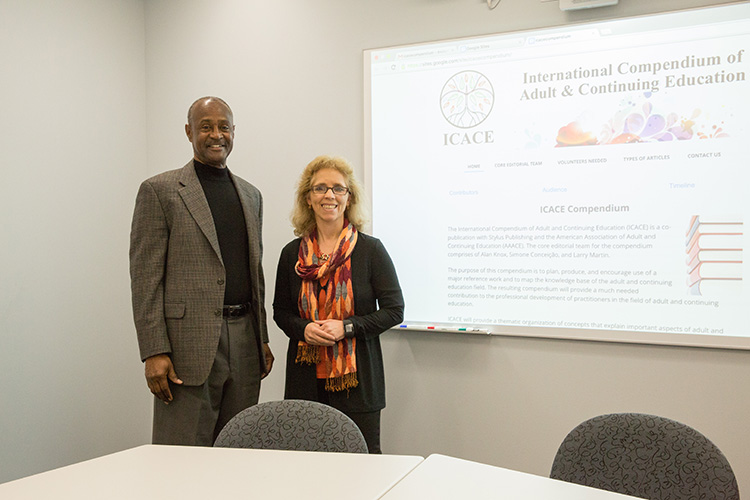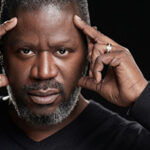When Larry Martin started out educating adults, he traveled rural Mississippi, teaching from one education center to another. “I taught adult basic education classes from the trunk of my car. I would pack up the GED books and the readers and all of that stuff, and traveled from place to place, teaching 16 or 17 adults at a time.”
Many years later, Martin, now a professor in the Department of Administrative Leadership at the University of Wisconsin-Milwaukee, is teaching others how to work with adult students. He will be honored for his years of teaching and researching in the field of adult education – 32 of them at UWM – when he is inducted into the International Adult and Continuing Education Hall of Fame Nov. 18.
Growing out of his early experiences, his research and publications have focused on the trends and issues that keep adult learners, particularly those who are low-income and/or people of color, from participating in adult education programs.
Martin had just completed his undergraduate degree in industrial arts education at Jackson State University when he got the calling to adult education – almost literally.
He was walking across campus when he heard someone shouting his name. “I looked around and here’s this 6-foot-2-inch, 250-pound black dude with a gold tooth, calling ‘Larry, Larry Martin.’” That man was Johnny Harris, Martin’s high school history teacher who had gone on to start a master’s degree program in adult education at Jackson State, one of the first at a historically black college or university.
Harris talked to Martin about Mississippi’s adult literacy rates, the lowest in the country.
“I said, ‘Dude, are you kidding me, adults who can’t read?’” Then Martin remembered the construction workers his dad hired. “They were very good workers, very good at construction, but they hadn’t finished high school and many of them were low literate.”
Eventually Martin came to Wisconsin, completing a doctorate in adult and continuing education at the University Wisconsin-Madison and joining the faculty in UWM’s School of Education. He has
continued his focus on helping adult learners, especially those who face challenges because of low income and discrimination.
After becoming involved with welfare-reform efforts, he co-authored a text that informs literacy professionals on how to more effectively serve adult learners. His publications remain focused on urban adult education, including his most recent book: “Adult Education in an Urban Context: Problems, Practices, and Programming for Inner-city Communities.”
Martin looks at the challenges these learners face, and it inspires his research to make higher education more accessible to all – particularly those who were left behind or opted out of their earlier educational experiences. “We need to help them understand that if they didn’t succeed, there are reasons for their lack of academic success, and they can find ways around these limitations.”
Among the challenges:
* Institutional barriers. Finding classes at a place and a time convenient to them. “And, if the cost is too high or if the language used to communicate to [adult learners] is too abstract, they don’t come.”
* Personal barriers. “We all balance family, jobs, community commitments, but some of the other personal barriers might be the anxiety a person might have in terms of their own confidence and ability to learn.”
* Family and work commitments outside the classroom. It’s easy for adults returning to school to get overwhelmed by adding classes to a life full of other commitments. “You shouldn’t just add another load onto a busy life schedule,” Martin warned, “but enlist family members in taking over more responsibilities.”
* Past experiences with the K-12 school system that leave them with a negative attitude toward education. “ Kids who go to school and who fail in school were told on a routine basis that they can’t succeed in school. That affects them and the effect is lifelong.”
Ultimately, Martin would like to see UWM do more to help adult students at the university bring their families and loved ones along on their education journey. “You have to let them know that they don’t need be afraid. This person is going to change, but your whole family is going to change for the better once this person gets a degree.”







